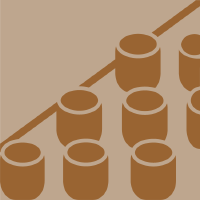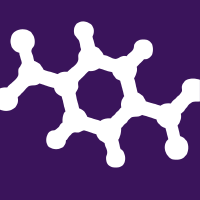Topic Menu
► Topic MenuTopic Editors


Material and Process Innovations for 3D Printing Applications
Topic Information
Dear Colleagues,
Additive manufacturing (AM), also known as 3D printing, is an innovative and emerging technology offering many advantages for various applications and industries at the design, material and processing level. AM offers many opportunities, encourages unique designs and integrates new materials, smart production methods, digitalization and advanced information technology within Industry 4.0. The contribution of AM to the circular economy is also of great importance. AM is essential as it allows the production of personalized products and lot size one with shorter lead times and less waste. Recently, AM research also has focused on the integration of certain aspects such as sustainability, recyclability and circular economy. In addition, environmental and health issues that occur when producing and applying AM are investigated.
In general, additive manufacturing can reduce inventory, make complex parts on demand, create smaller localized manufacturing environments and reduce the cost and complexity of supply chains, thus reducing logistics needs. AM technologies are very promising due to their tremendous market opportunities and multicomponent compatibility for a wide scope of materials such as polymers, composites, metals, ceramics and hybrids.
Understanding the fundamental relationship between the design, the materials and processing innovations, as well as broadening the available materials, is important for the additive manufacturing of advanced engineering (e.g., automotive and aerospace sector), medical (e.g., scaffolds and tissue engineering) and related technologies. Achieving high product quality by a combination of both material sciences and equipment/processing innovation is another main and common research challenge. For most AM technologies, the process relies on the transition of liquid phases into well-defined solid materials. This transition is influenced by many parameters that are either processing or material related.
In this Topic, there is a focus on the connection between the research fields of materials science and process innovations for additive manufacturing applications. Both theoretical and experimental contributions can be submitted.
It is our pleasure to invite you to submit a manuscript to this Special Issue, including full papers, reviews and short communications.
Prof. Dr. Ludwig Cardon
Prof. Dr. Clemens Holzer
Topic Editors
Keywords
- additive manufacturing
- 3D printing
- materials engineering
- process engineering
- new materials
- hybrid materials
- recyclability
- sustainability
- new applications
- design
Participating Journals
| Journal Name | Impact Factor | CiteScore | Launched Year | First Decision (median) | APC |
|---|---|---|---|---|---|

Materials
|
3.1 | 5.8 | 2008 | 13.9 Days | CHF 2600 |

Metals
|
2.6 | 4.9 | 2011 | 17.8 Days | CHF 2600 |

Applied Sciences
|
2.5 | 5.3 | 2011 | 18.4 Days | CHF 2400 |

Polymers
|
4.7 | 8.0 | 2009 | 14.5 Days | CHF 2700 |

Journal of Manufacturing and Materials Processing
|
3.3 | 5.1 | 2017 | 16.5 Days | CHF 1800 |

Preprints.org is a multidisciplinary platform offering a preprint service designed to facilitate the early sharing of your research. It supports and empowers your research journey from the very beginning.
MDPI Topics is collaborating with Preprints.org and has established a direct connection between MDPI journals and the platform. Authors are encouraged to take advantage of this opportunity by posting their preprints at Preprints.org prior to publication:
- Share your research immediately: disseminate your ideas prior to publication and establish priority for your work.
- Safeguard your intellectual contribution: Protect your ideas with a time-stamped preprint that serves as proof of your research timeline.
- Boost visibility and impact: Increase the reach and influence of your research by making it accessible to a global audience.
- Gain early feedback: Receive valuable input and insights from peers before submitting to a journal.
- Ensure broad indexing: Web of Science (Preprint Citation Index), Google Scholar, Crossref, SHARE, PrePubMed, Scilit and Europe PMC.

